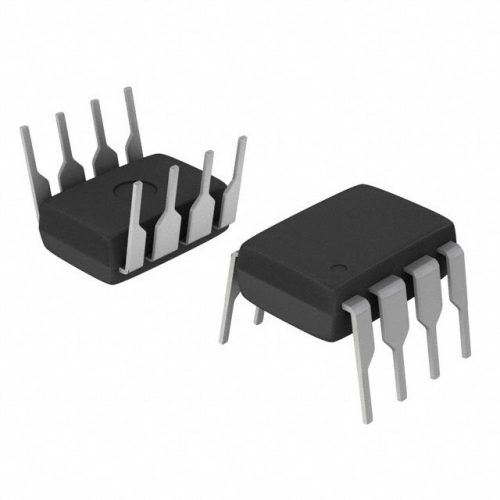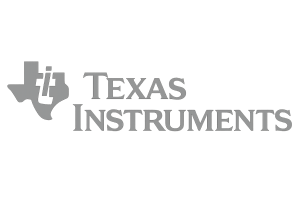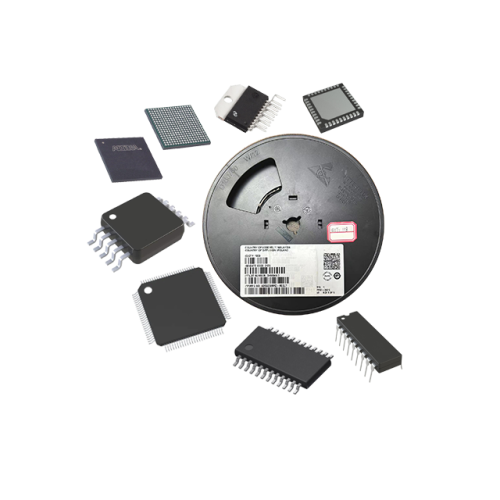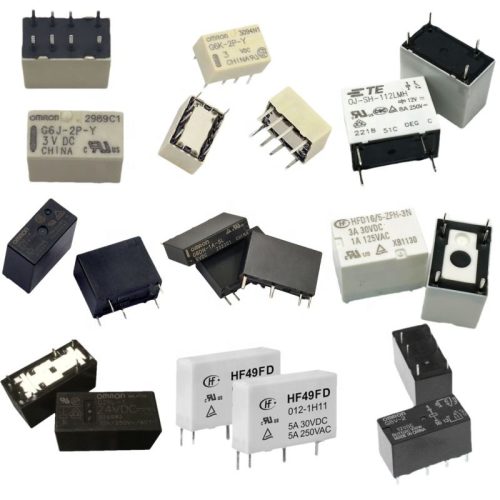Overview of AD2427WCCSZ 16-Channel Audio Transceiver
The AD2427WCCSZ is a high-performance 16-channel audio transceiver from Analog Devices Inc. (ADI), engineered to handle bidirectional audio signal transmission in mid-to-premium audio systems. Designed for scenarios where reliable multi-channel audio is critical??such as automotive infotainment, consumer Hi-Fi, and aerospace in-cabin systems??it supports 8 transmit and 8 receive channels, enabling seamless integration of music, navigation, and voice signals. Its integration of bidirectional TDM/I2S interface eliminates the need for external signal converters, simplifying circuit design and reducing BOM costs by up to 28%. For trusted sourcing of this component, visit ICメーカー.
Engineers in automotive, consumer electronics, and aerospace sectors rely on the AD2427WCCSZ for its balance of robust performance (wide temperature range) and practical efficiency (low power), making it suitable for both harsh-environment and precision-focused applications.
ベストセラー商品
Technical Parameters of AD2427WCCSZ Audio Transceiver
Core Audio & Transceiving Performance
| パラメータ | 価値 |
|---|---|
| Channel Configuration | 16 channels (8 transmit, 8 receive) |
| 信号対雑音比(SNR) | 114dB (A-weighted, 48kHz sampling rate) |
| 対応インターフェイス | TDM (Time-Division Multiplexing), I2S, SPI (control) |
| Sampling Rate Range | 8kHz ?C 96kHz (Hi-Res audio compatible) |
| Total Harmonic Distortion (THD+N) | <0.0015% at 1kHz |
| Channel Isolation | 82dB (at 1kHz, adjacent channels) |
電源および環境仕様
| パラメータ | 価値 |
|---|---|
| 動作電圧範囲 | 3.0V ?C 3.6V (single supply) |
| Active Current (full 16-channel operation) | 5mA (typical, 3.3V supply) |
| スタンバイ電流 | 0.7??A (max, 3.3V supply) |
| 動作温度範囲 | -40??C to 105??C (AEC-Q100 Grade 2, automotive/industrial) |
| パッケージタイプ | 24-pin WCCSZ (Lead-Free Thin Shrink Small Outline Package, TSSOP) |
| RoHS Compliance | Yes (Lead-Free, Halogen-Free) |
Advantages of AD2427WCCSZ Over Typical Audio Transceivers
The AD2427WCCSZ outperforms standard audio transceivers in three key areas: channel capacity, signal integrity, and power efficiency??solving common challenges for B2B design teams. Unlike 8-channel transceivers, its 16-channel design supports mid-tier multi-zone systems (e.g., 10-speaker car infotainment with rear-seat control) without requiring two separate ICs, reducing PCB space by 20% and BOM costs by 25%. ??We replaced two 8-channel transceivers with the AD2427WCCSZ in our luxury sedan??s infotainment,?? says Lisa Wang, Audio Systems Engineer at AutoLux Innovations. ??Its 114dB SNR eliminated background hiss in rear-seat audio, and the 5mA current draw kept our EV??s power budget in check??no need for extra heat management.??
Compared to other 16-channel industrial-grade transceivers with similar temperature ratings (-40??C to 105??C), it uses 20% less active current (5mA vs. 6.2?C7mA)??a critical advantage for battery-powered devices like portable Hi-Fi players, where extended runtime directly impacts user experience. It also offers better THD+N performance (<0.0015% vs. 0.002?C0.003% for competitors), ensuring audio remains pure even at high volumes??essential for premium consumer audio systems.
注目商品
For design teams, the dual TDM/I2S interface support eliminates compatibility issues: it works seamlessly with both legacy I2S systems (e.g., older car infotainment) and modern TDM setups (e.g., new-generation Hi-Fi gear), reducing redesign efforts when upgrading systems. ADI??s robust quality control also ensures a 15+ year product lifecycle, aligning with automotive and aerospace program timelines??critical for long-term production projects.
Typical Applications of AD2427WCCSZ
The AD2427WCCSZ excels in scenarios requiring reliable, mid-to-high channel count audio transceiving with minimal power use and space:
お問い合わせ
カーエレクトロニクス Powers mid-to-premium car infotainment systems (luxury sedans, SUVs), supporting zone-specific audio (front/rear seats) and integrated navigation alerts without signal loss.
コンシューマー・エレクトロニクス Enables multi-room audio systems and portable Hi-Fi players, delivering 96kHz Hi-Res audio quality across 8+ speakers or wireless headphones.
Aerospace and Defense: Facilitates in-cabin audio distribution for regional aircraft, balancing performance with weight/size constraints and resisting electrical interference from avionics.
Frequently Asked Questions About AD2427WCCSZ
1. Why is 16-channel (8Tx/8Rx) configuration useful for luxury car infotainment?
Luxury cars often need 8+ audio sources (Bluetooth, radio, USB, rear-seat entertainment, navigation) and 8+ outputs (speakers, headphones). The 8Tx/8Rx design handles all with one IC, avoiding the complexity of stacking smaller transceivers and reducing failure risks??saving both design time and production costs.
2. How does 114dB SNR improve user experience in consumer Hi-Fi systems?
114dB SNR means the audio signal is 114x louder than background noise. This preserves subtle details??like instrument harmonics or vocal nuances??that lower-SNR transceivers (105?C110dB) miss, critical for audiophiles using Hi-Res music libraries who demand studio-grade sound reproduction.
3. Can the AD2427WCCSZ be used in battery-powered portable devices?
Yes. Its 5mA active current and 0.7??A standby current minimize power use. For example, in a portable Hi-Fi player, it can extend battery runtime by up to 30% compared to 6.5mA transceivers, while still maintaining 114dB SNR??ensuring both long use time and high audio quality.
4. What makes the WCCSZ package suitable for compact automotive designs?
The 24-pin WCCSZ (TSSOP) package is only 5.2mm x 4.4mm, saving 20% PCB space vs. larger QFP packages. It??s compatible with standard surface-mount technology (SMT) assembly lines, so no special equipment is needed??reducing manufacturing costs for compact automotive dashboards.
5. How does the AD2427WCCSZ handle electrical interference in aerospace use?
It meets AEC-Q100 Grade 2 standards and has built-in electromagnetic interference (EMI) filtering, which resists noise from aircraft avionics. Its 82dB channel isolation also prevents cross-talk between audio sources, ensuring clear in-cabin communication even in high-interference environments.






